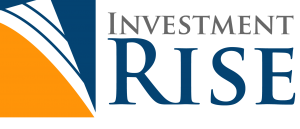To Fix or Not to Fix Your Rates? The 3 Things to Consider Before You Decide to Fix
By: Niro Thambipillay
September 14, 2016
It’s a common dilemma – do you fix your rates or don’t you? Fixing your rates gives you security that you know what your repayments will be during the fixed rate period. However, it also gives your lender the assurance you will almost certainly remain a client for the full extent of the fixed rate period. Even if you do decide to refinance during a fixed rate period for whatever reason, you will almost certainly end up paying hefty penalties. So your lender will make their money anyway. I’ve seen some people have to pay nearly $30,000 in penalty fees in order to break their fixed loan contract. Most people only think about fixing rates when there is a chance they will rise. That makes sense because you don’t want to pay any more than you have to. However, you need to consider whether the long term implications of fixing your home loan are actually right for you. So let’s have a look at the 3 factors that you need to consider before you fix your loan.
1. Do you plan to pay off your loan more quickly?
This is especially relevant if you’re thinking of fixing your home loan. With almost all banks, when you fix your rates, you’re actually fixing your loan. That’s not just semantics. When you fix your loan, it means your loan and loan amount must essentially stay the same for the fixed period. In fact many banks only allow you to pay off a maximum of $10,000 extra on your home loan during each year of the fixed rate period. If you pay extra, it is considered a change in the loan and you are charged penalties. Yes, it is an insane as it sounds. You can be charged penalties for paying off your mortgage more quickly! If you have an interest only loan on an investment property, this is normally not a problem. If however you are considering fixing the loan on your home, consider whether you are hampering your ability to pay off your loan more quickly. Remember, the sooner you pay off your home loan, the more interest you save – which means you get to keep more of your hard earned money. If you do decide to adopt a fixed rate option, sometimes it makes sense, if your lender allows it, to fix part of your home loan and keep another part flexible. This allows you to benefit from a constant rate on part of your loan while also paying off your home loan more quickly.
2. Do you plan on tapping into equity?
The equity you have in your property is one of your biggest assets. Many just leave it alone without touching it. However, consider that you can use it for renovations on your home as well as for a deposit on an investment property. Unfortunately, you almost certainly won’t be able to anything like this during a fixed rate period. Even though it essentially means you’ll be borrowing more from your lender, you may still be charged penalties for changing your loan. A client of mine recently came to me for a consultation on what to do about his loans. We reviewed his portfolio. He had 3 investment properties which had just gone through a growth spurt and he didn’t think they would grow much in the next 3 years. So he fixed his investment properties. However, he kept his home fully flexible because it was more important for him to be able to pump extra money into his home loan and pay it off more quickly. Even if rates were to increase, he knew that the progress he was making, based on the plan we put in place for him, would help him overcome the impact of rising rates.
3. Do You Plan on Selling During Your Fixed Rate Period?
If you sell your property during a fixed rate period, you will have paid off your home loan more quickly than the Fixed Loan conditions allowed. Therefore, the bank will not have made as much money off you – and will almost certainly slug you with penalties. As I said earlier, a fixed loan gives the bank an almost guaranteed profit amount during that period and they will do everything they can to protect themselves. So if you plan on selling in the short term, ensure your loan stays flexible to allow you to maximise your profits AND not pay unnecessary fees. So there you have it – the 3 things to consider before you decide to fix your rates. If you want to find out more about how to structure your finances correctly as well as a proven 17 Point Property Selection Criteria, I’m holding a special, no obligation online class where I’ll cover all of this and so much more. To find out if this will be a good fit for you, visit our Online Class page To your success, Niro



